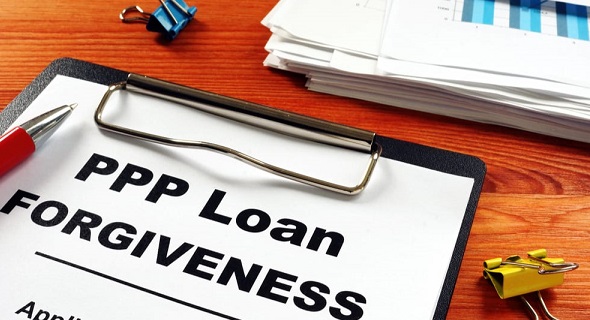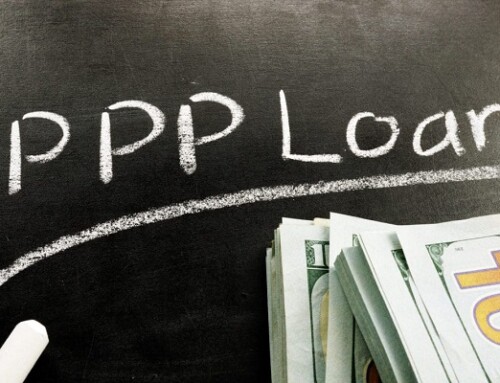PPP Loan Forgiveness for Partnerships, S and C Corporations
If you operate your business as a partnership or an S or C corporation, you face entity-specific Payroll Protection Program (PPP) loan forgiveness rules that apply to you as an owner-worker in the business. The rules that apply to you do not apply to the rank-and-file employee group. The government puts you, the owner-worker, in a separate “owner-employee” category to limit your business’s PPP benefits. There are four types of owner-employees:
- General partners in partnerships
- S corporation shareholder-employees
- C corporation shareholder-employees
- Form 1040, Schedule C filers (e.g., the self-employed, sole proprietors, 1099 recipients, single-member LLCs, and husband and wife LLCs treated as single-member LLCs)
If you own all or part of your business and work in the business, you fall into one of the four categories. The maximum loan attributable to and forgiveness available for the “compensation paid” to any SBA-defined owner-employee across all businesses is
- $15,385 for borrowers who received a PPP loan before June 5, 2020, and elected to use an eight-week covered period.
- $20,833 for borrowers under the 24-week covered period.
Owners of Multiple Businesses Beware
If you have ownership interests in more than one business, you need to consider that the owner-employee loan maximums apply to all your businesses. The new interim final rule puts the $15,385 or $20,833 deemed compensation cap on the loan forgiveness for the defined owner-employee, but contains no guidance on how to allocate or otherwise deal with the caps when you have ownership interests in multiple businesses.
Example. Jim operates an S corporation and a proprietorship. He receives his PPP loan on June 17. The cap on Jim’s combined S corporation and proprietorship loan forgiveness attributable to (a) Jim’s employment in the S corporation and (b) his profits from the proprietorship is $20,833. We know Jim can obtain loan forgiveness for up to $20,833, but we have no guidance on how Jim would allocate the forgiveness between the S corporation and proprietorship. Perhaps by the time Jim applies for PPP loan forgiveness, we will have some directions.
Partnerships
The PPP loan forgiveness begins for general partners at the amount of their 2019 net earnings from self-employment (reduced by claimed Section 179 expense deductions, unreimbursed partnership expenses, and depletion from oil and gas properties) multiplied by 0.9235. You then take the lesser of the amount determined above or $100,000, divide by 12, and multiply by 2.5 to find the loan amount. With this calculation, the maximum loan is $20,833. The maximum forgiveness attributable due to the partner’s self-employment income is
- $15,385 if the partnership obtained its loan before June 5, 2020, and elected the eight-week regime, or
- $20,833 if the partnership is under the 24-week program.
Planning note. Under the 24-week program, the partnership with no employees does not need to spend any amounts on interest, rent, or utilities to obtain full forgiveness. It can obtain full forgiveness in 11 weeks using the calculated self-employment income of up to $20,833 for each partner.
S Corporations
As with all owner-employees, the PPP loan and its forgiveness for “compensation” are capped at $15,835 under the eight-week covered period and $20,833 under the 24-week covered period.
Reminder. The $20,833 cap is based on the maximum defined compensation of $100,000 divided by 12 and then multiplied by 2.5.
Under the 24-week program, the S corporation whose only employee is an owner-employee obtains full loan forgiveness after 11 weeks when using the 24-week covered period without spending anything for interest, rent, or utilities. If the S corporation with no employees other than the owner-employee elects the eight-week covered period, the corporation has to spend money on interest, rent, and utilities to rise above the $15,385. The Paycheck Protection Program Flexibility Act of 2020 created a new statutory 60 percent payroll rule. Using the 60 percent enables the S corporation with no employees other than the sole owner-employee that elects the eight-week covered period to achieve full forgiveness with payments for interest, rent, and utilities. S corporation owner-employees are capped by the amount of their 2019 employee cash compensation and employer retirement contributions made on their behalf, but employer health insurance contributions made on their behalf cannot be separately added because those payments are already included in their employee cash compensation.
Example. Liz operates her solo busines as an S corporation. Her 2019 W-2 compensation of $68,000 included $18,000 for medical insurance. Her payroll cost for the PPP loan and its forgiveness includes the full $68,000 plus what the S corporation paid into her retirement plan and to the state for unemployment insurance. The total of these amounts is capped at $100,000, which creates the $20,833 maximum loan amount as explained above.
C Corporations
C corporation owner-employees are capped by the amount of their 2019 employee cash compensation and employer retirement and health insurance contributions made on their behalf.
Example. Don operates his business as a C corporation where he is the only employee. In 2019, the corporation paid Don a salary of $60,000, contributed $12,000 to his retirement plan, paid $20,000 for his family’s medical insurance, and paid $350 to the state for unemployment insurance. Don’s corporation has $92,350 in qualifying payroll costs. His loan and forgiveness are capped at $19,240 ($92,350 ÷ 12 x 2.5).
Form 1040 Schedule C Businesses
Your PPP loan and its forgiveness for “compensation” are capped at $15,835 under the eight-week covered period or at $20,833 under the 24-week covered period. The cap amounts are computed using your net profit from line 31 of your 2019 Schedule C. Your easy-peasy road to 100 percent loan forgiveness is the 11-week program. With 11 weeks of taking the loan amount out of the business, you obtain full forgiveness without paying any rent, utilities, or interest.
When Can the Owner-Employee’s Business Apply for Forgiveness?
According to SBA guidance issued on June 22, 2020, you may submit your loan forgiveness application anytime on or before the maturity date of the loan—including before the end of the covered period—if you used all the loan proceeds for which you requested forgiveness.
Example. Ron receives his $20,833 PPP loan on May 19, 2020. During the 11 weeks beginning with May 19, 2020, Ron’s corporation pays qualified payroll costs that total $20,833. Ron can apply for $20,833 of loan forgiveness anytime after the 11th week.





